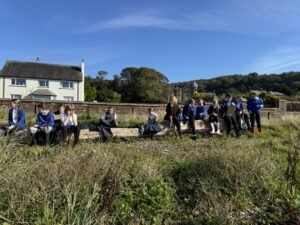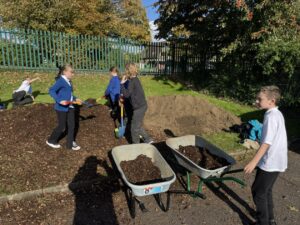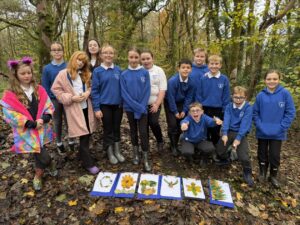
Why Outdoor Learning?
Research clearly shows that Outdoor Learning had the following benefits to human health:
• enhanced personal and social communication skills
• increased physical health
• enhanced mental health
• enhanced sensory and aesthetic awareness
• the ability to assert personal control and increased sensitivity to one’s own well-being
Outdoor learning also helps young people to:
• develop self-esteem, take personal responsibility, co- operate with and respect the needs of others
• extend their personal horizons through greater appreciation and understanding of the world and its peoples around them
• understand the need for sustainable relationships between people and their environment
• enhance practical problem solving and team-work skills
• promote a positive and knowledgeable response towards personal health and well being
Most importantly, Outdoor Learning can significantly improve
pupil attainment in literacy and numeracy. For example, one research study has shown that pupils involved in an outdoor learning project for 2 hours per week over 12 weeks gained an average increase of 6 months for Mental Arithmetic and 2 months for General Maths. They also showed a 20% increase in their attitudes to learning, while the control group decreased by 3% over the same period.
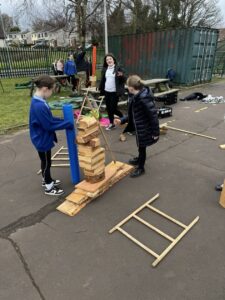
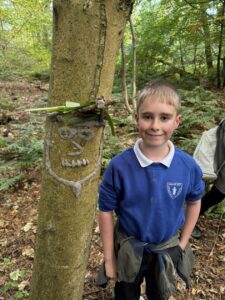
How does Outdoor Learning improve attainment?
• First, it improves pupil engagement in school. Children love to play and learn outdoors. When pupils are more engaged, they learn more effectively and as a result increase their attainment.
• Second, Outdoor Learning provides a much-needed context for literacy and numeracy tasks. When pupils complete tasks related to real-life, authentic contexts, they perform better. For example, pupils will perform better when writing about an Outdoor Learning experience (a recount), or preparing for an Outdoor Learning Experience (an instructional text) than if they were to complete a written task without an authentic context.
• Third, Outdoor Learning improves physical and mental health. Children do not learn effectively when they are experiencing health issues or are feeling anxious or uncomfortable.
The results from our parent/carer, staff and pupil surveys clearly show than many people within our community value Outdoor Learning highly and would like us to engage in more of it. We are extremely fortunate to have a wonderful array of environments within walking distance, including woodlands and beaches. We also have an expansive playground. Moving forward, we will be incorporating these environmental spaces into our approach to learning.
What can Outdoor Learning look like?
In the early years, Outdoor Learning is directed by leaders and teachers for a specific purpose. The children have freedom to explore within these boundaries. Children may explore an environment to learn a concept around relationships or as a provocation for a writing task. They can also engage in many hands on numeracy activities in these locations. Children can also engage in play, an essential part of development and the foundation to effective learning and attainment. In the older years, children may also participate in directed experiences, but they also may be able to learn independence through less structured activities. They may be able to use some of their Outdoor Learning time to complete a task of their own choosing. They will negotiate this task with their teacher to ensure that it improves their learning in the curriculum areas the class is currently focussing on. Our teachers and leaders are always engaging in professional learning around Outdoor Learning, how to plan it and how to incorporate it within a larger curriculum approach.
